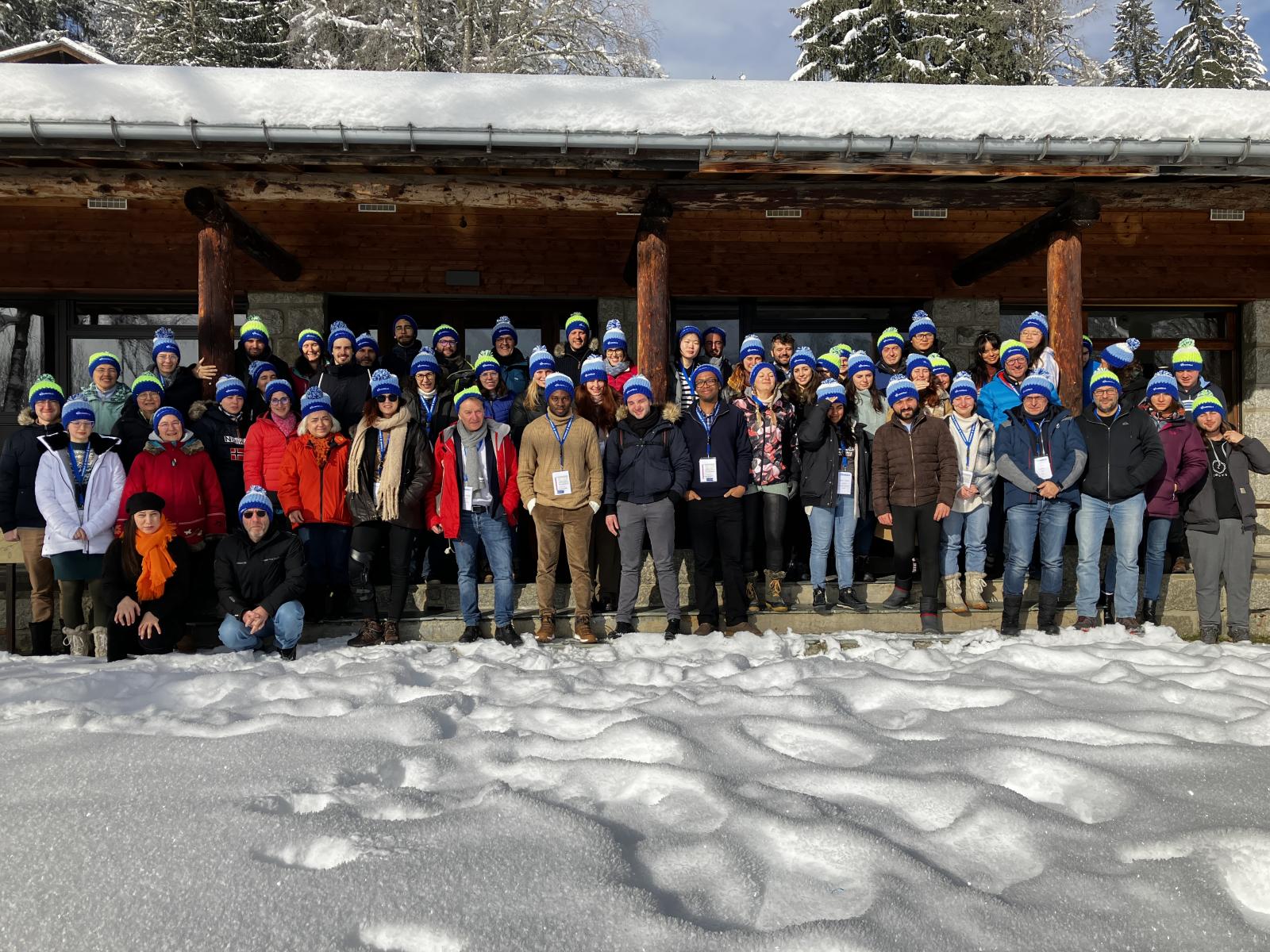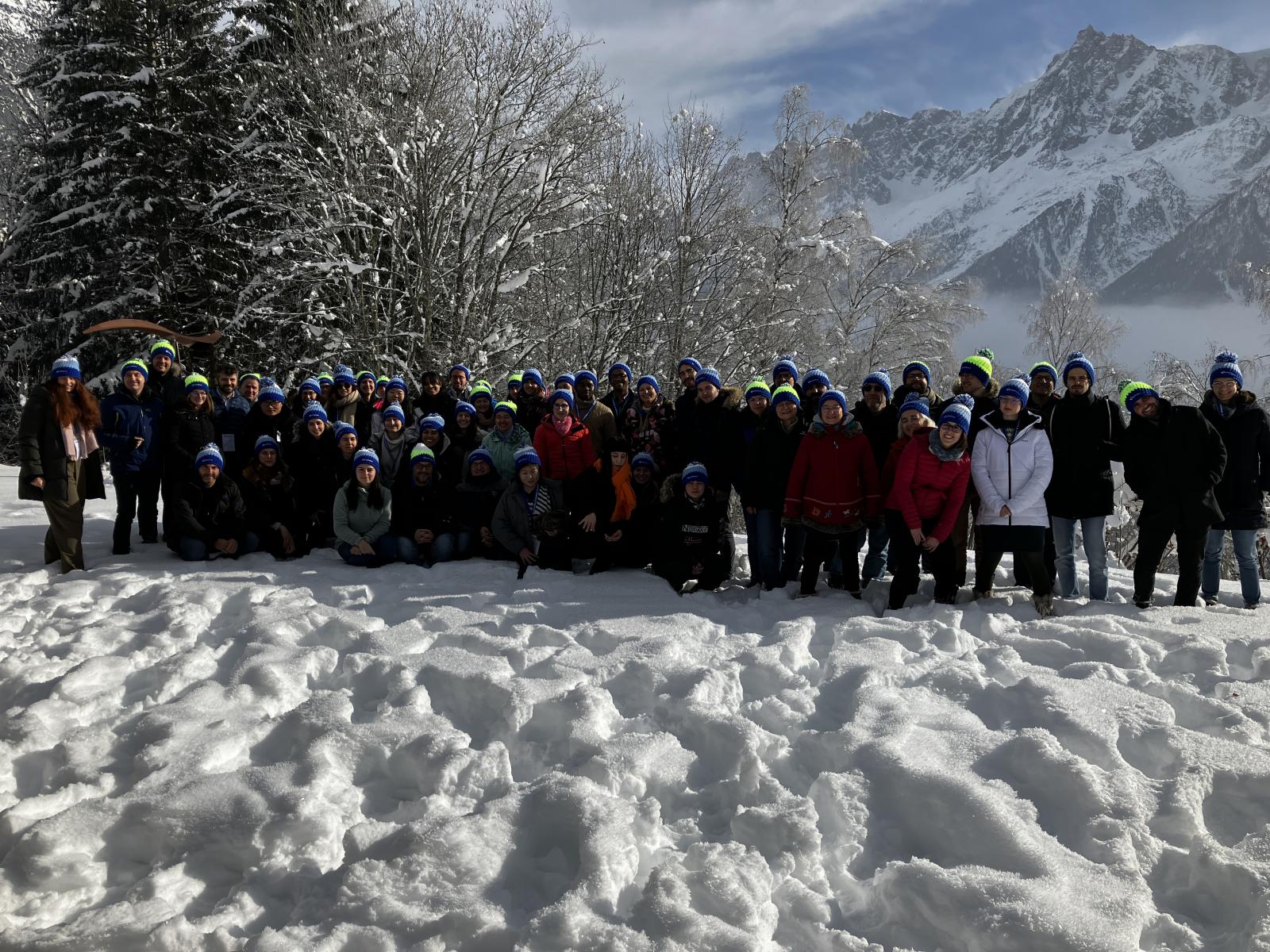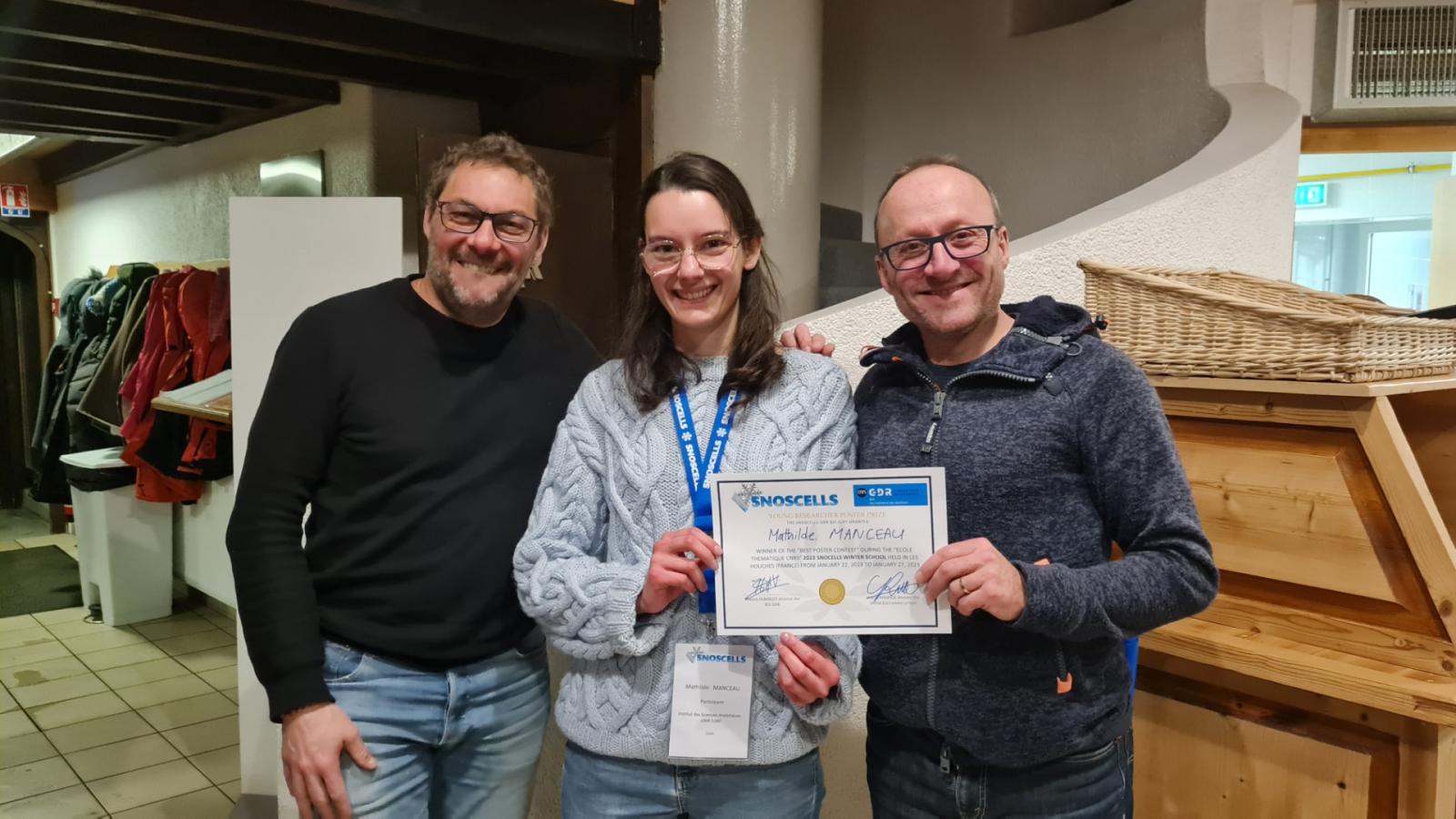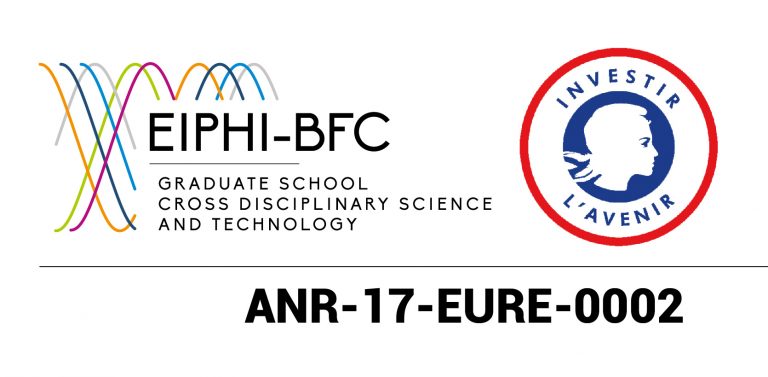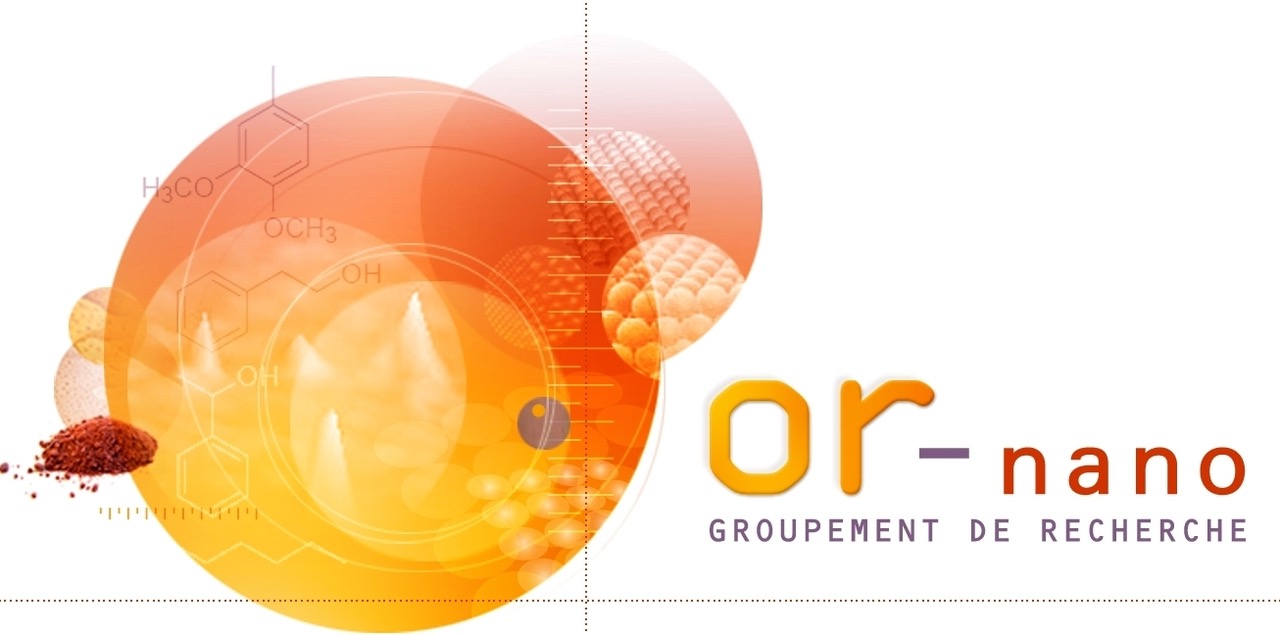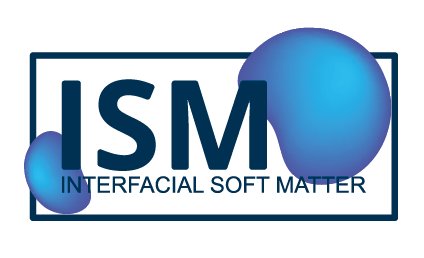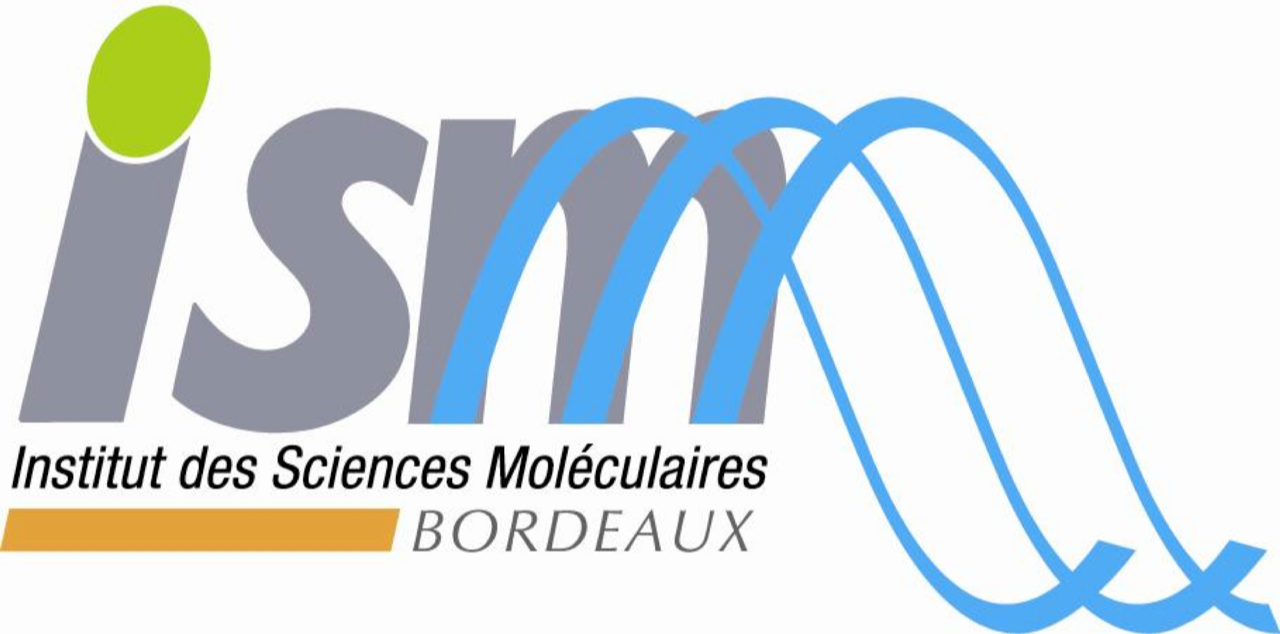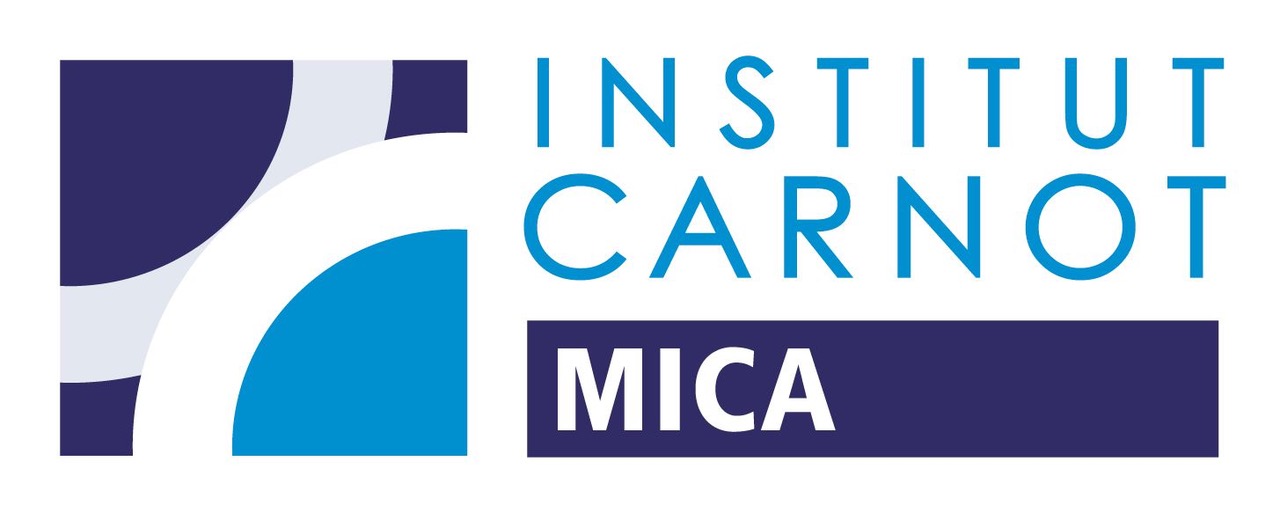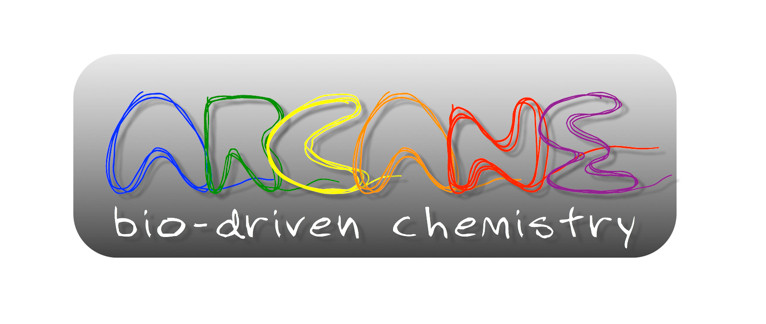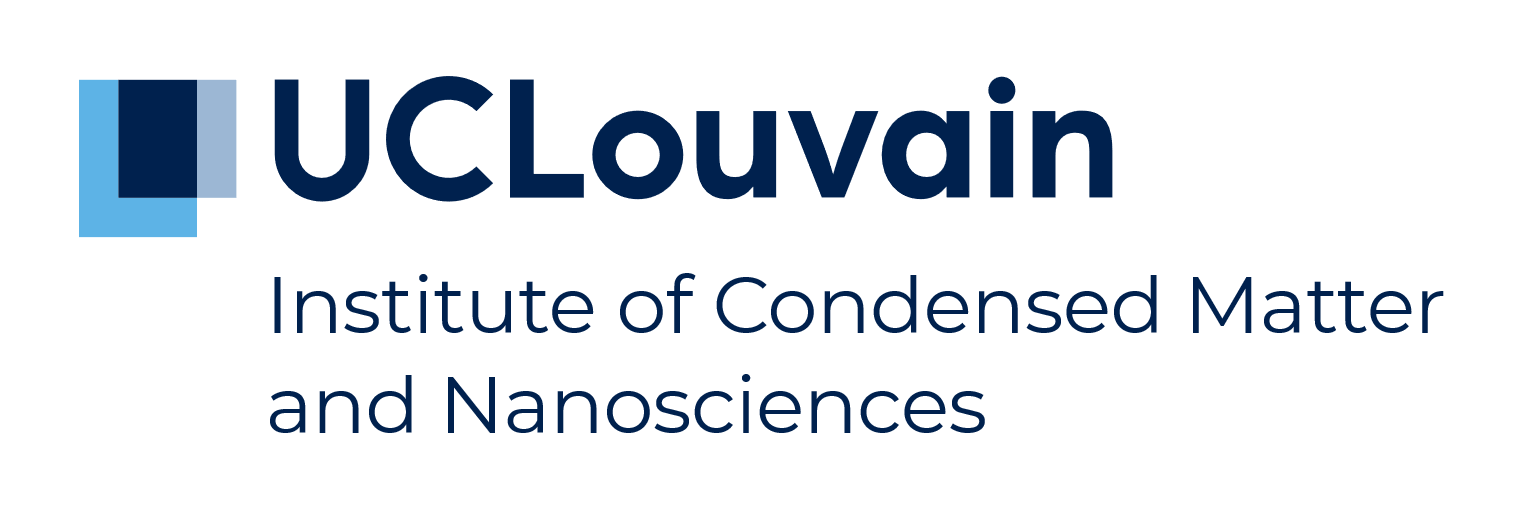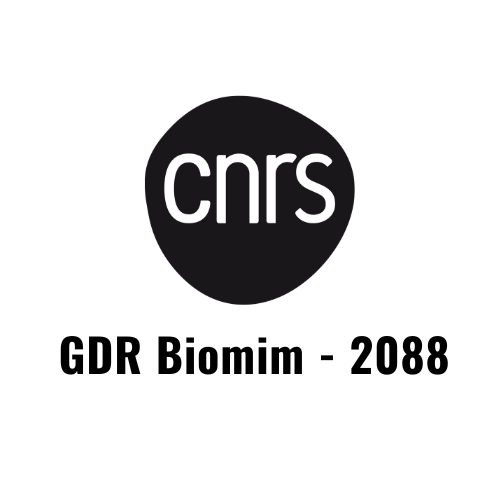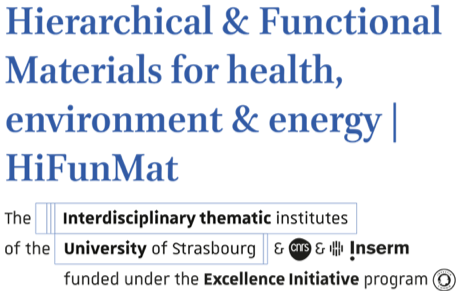Ecole Thématique SNOSCELLS 2023
SURFACES AND NEW ORIGINAL STRATEGIES FOR CELL STUDIES
retrouver le livret des résumés ici
retrouver les documents de cours en cliquant ici
retrouver toutes (?!) les photos ici
Lauréats prix posters:
1er Prix : Mathilde MANCEAU- ISA - Lyon
2nd Prix : Valentin CHALUT - UCBL - Villeurbanne
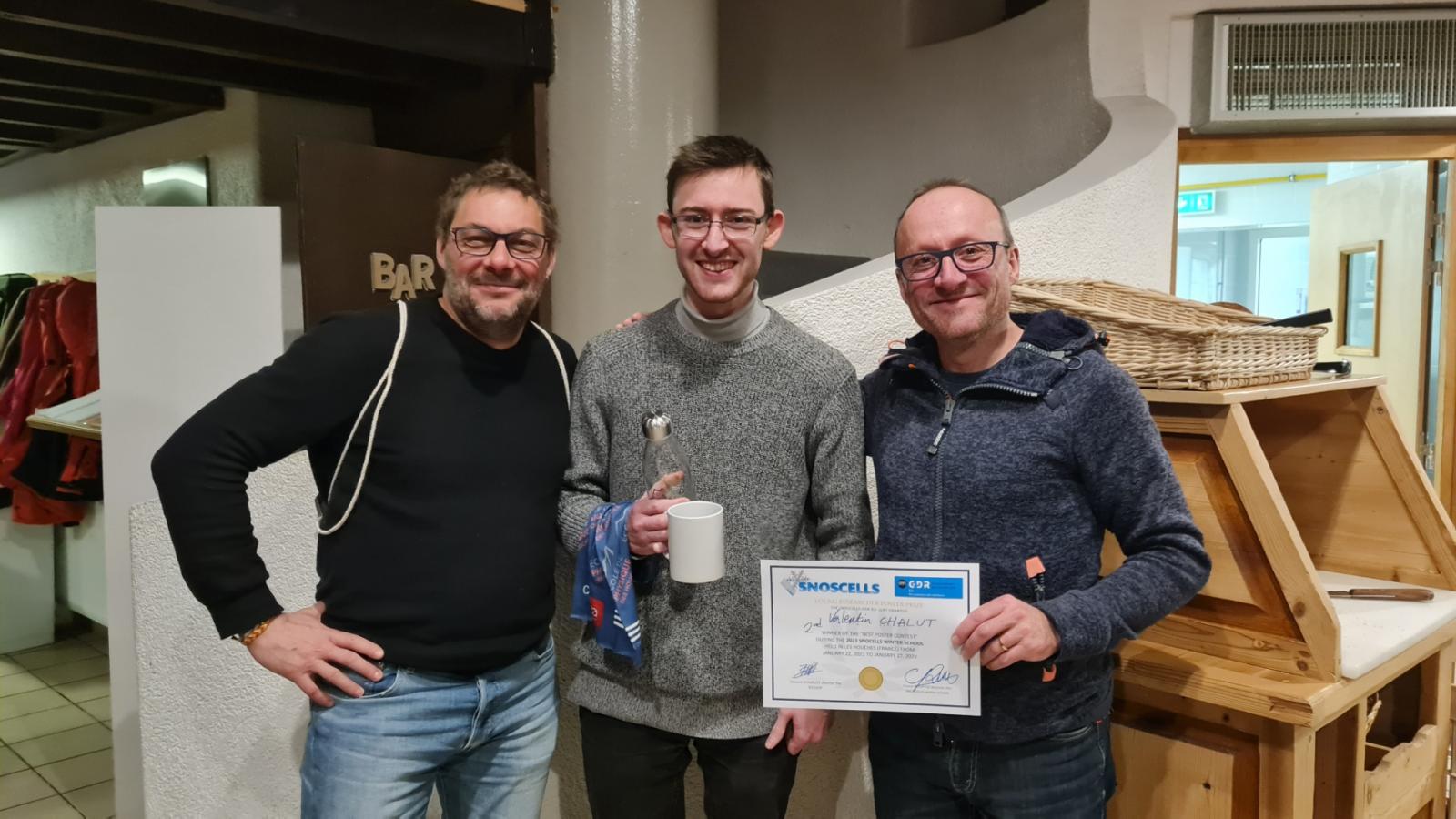
Comme pour toute école thématique CNRS, les frais d'inscriptions à SNOSCELLS comprennent l'hébergement sur site en chambre individuelle et la pension complète, du dimanche 22 janvier au soir (dîner compris), au vendredi 27 janvier après le déjeuner.
PARTENAIRES
SPONSORS

22-27 janvier 2023, Les Houches
Physical interactions between living cells and surfaces are a key process in several domains such as biosensing, tissue engineering, drug delivery, development of medical devices, etc. The aim of the workshop is thus to explore the interface between Physics, Chemistry and Biology to better understand and control cell behaviour onto solid surfaces. In this context, we aim at proposing an event dedicated to up-to-date overviews of new highly-defined materials and biomaterials.
In this context, our workshop aims at providing an overview of the recent developments achieved on material and surfaces to better control cell-surface interactions in order to tune and exploit biological processes. Such a 5 days-long event dedicated to this scientific scope requires selection of a limited set of subjects, separated in 3 main sessions, as illustrated on the scheme below. For this reason, the scientific committee wants to highlight the following topics in the program:

Mains topical sessions
A. Active surfaces to control cell behaviour (session 1): Focus on how to design a bioactive material surface to act on cellular events for applications in cell-based assays, bio-sensing, development of medical devices and regenerative medicine.
B. Bactericidal or bacteriostatic surfaces (session 1): Focus on the engineering of materials to repel, avoid or control bacterial adhesion and biofilm formation.
C. Design of microsystems for the fast and sensitive detection of pathogens (session 2): Focus on microfluidic-based and other miniaturized devices dedicated to the fast and easy-to-operate detection of pathogens for biomedical or food applications.
D. Biomaterial engineering for tissue and bone healing (session 3) : Focus on the design of scaffolds enabling the fast and safe tissue regeneration.
These topics are expected to highlight how different scientific communities are developing original and cross-disciplinary strategies to address common issues, namely the modelisation, design, fabrication and processing of materials dedicated to better control living cell-surface interactions. This approach should thus be considered as a key feature in the novelty and originality of this workshop in regard to what has been proposed so far in a similar format. In parallel to these topics, we wish to propose (after dinner) lectures and/or round table discussions on cross-cutting theme.
Mains transversal sessions
A. The management of bio-ethical issue in research for Health. The aim is to raise concerns on the ethical aspects to be considered when developing science and designing devices and applications at the interface between inert materials and living cells.This topic will be presented and discussed by Nicolas Aumonier.
B. The (un)ability of the international scientific community to correct itself in a highly competitive and comparative world. In the context of an increasing pressure to publish a large number of papers, in high index journals, the publication of (deliberately or not), wrong results diffusion is getting a dangerous concern. For instance, see the ERC Synergy NanoBubbles project, coordinated by Dr Raphaël Levy, identified as a perfect speaker for discussion on this topic. https://erc.europa.eu/news-events/magazine/erc-2020-synergy-grants-examples
C. Moving from scientific results production to an industrial valorization. We wish to share the industrialization experience of academic researchers in the scientific scope of the school. Several senior researchers with successful experiences in scientific result valorization have already been identified by the organizing committee. Such feedbacks are particularly valuable as such transfer requires some specific skills and knowledge only poorly taught to young researchers. The Everzom company would be a perfect example to illustrate a succesfull industrial project borne from results in the scope of the workshop, and will be presented by Jeanne Volatron
The previsionnal program is presented in the schedule below and details of interventions are listed above
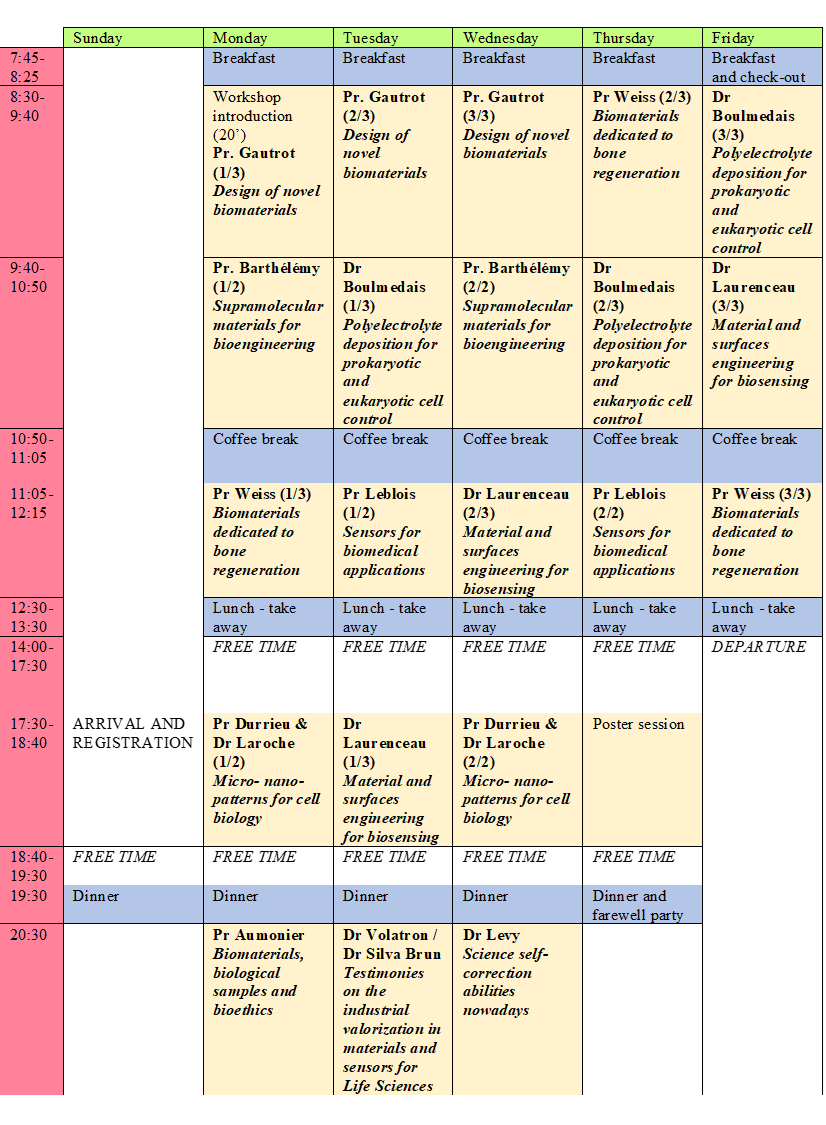
SESSION 1 : Materials for controlling eukaryotic & prokaryotic cells
Julien Gautrot (Professor, Queen Mary University of London, UK).
The expertise of Prof. Gautrot focuses on the design of novel biomaterials and methodologies that allow the study of bio-interfaces and their control for applications in cell-based assays, bio-sensors and regenerative medicine. His approach to design new biomaterials is directly inspired by Nature's strategies to generate complexity and control biomaterial function and properties such as mechanical, chemical and biological properties.
https://www.sems.qmul.ac.uk/staff/research/j.gautrot
Philippe Barthélémy (Professor, ARNA, INSERM U 1212, Université de Bordeaux, France).
Prof Barthélémy is an expert in designing and assembling nucleoside-based amphiphiles for various biological applications (drug delivery, bioimaging, cell culture). He will be asked to provide lectures in the field of supramolecular materials (gels…) suitable for stem cell cultures, tissue engineering and/or bioprinting.
http://chembiopharm.fr/portfolio_page/philippe-barthelemy/
Marie-Christine Durrieu (Professor, INSERM-CBMN UMR CNRS 5248, Univ. de Bordeaux, France) and Gaëtan Laroche (PhD, Laval, Québec, Canada), expertise in bioactive micropatterning of biomaterials for induction of cell differentiation. Marie-Christine Durrieu, is a senior INSERM researcher specialized in biomaterials and tissue engineering. She has been active in many biomaterials engineering fields. She carried out research in surface functionalization, micro-, nano-patterning of materials using mainly peptides in order to favor cell adhesion, migration and differentiation.
Thérèse Leblois (Professor, FEMTO-ST, UMR CNRS 6174, Besançon, France) is professor at the University of Bourgogne Franche-Comté since 2007. She is working on the design and the implementation of micro-sensors based on acousto-fluidic interactions for biomedical applications. She has expertise on resonant sensors with biofunctionalized surface for bacteria detection and quantification and for blood analysis.
https://www.femto-st.fr/fr/personnel-femto/thereseleblois
SESSION 2 : Materials for detection and control of pathogens
Fouzia Boulmedais (PhD, ICS UPR22 CNRS, Strasbourg, France) is CNRS Research Director, expert in material functionalization by polyelectrolyte layer-by-layer deposition. Her research deals with the control of polyelectrolyte multilayer constructions and the incorporation and release of bioactive molecules from these polymer matrices. Her work is especially applied to the development of new surfaces for bioengineering and control of eukaryotic and prokaryotic cells on biomaterials.
https://www.ics-cnrs.unistra.fr/member-209-Boulmedais%20Fouzia.html
Jean-Pierre Cloarec (Professor, ECL-INL UMR CNRS 5270, Lyon, France) is lecturer at the Ecole Centrale de Lyon, where he teaches chemistry, environmental sciences and health technologies. He conducts his research at the Institute of Nanotechnologies of Lyon. He studies the behavior of biomolecules (DNA, proteins) at the liquid/solid interface. His work is applied to the development of new tools for medical and environmental diagnosis, such as biosensors and biochips.
https://www.ec-lyon.fr/en/contacts/jean-pierre-cloarec
SESSION 3: Tissue and bone engineering
Pierre Weiss (Professor, Université de Nantes, INSERM, France) is INSERM researcher and medical doctor. Strong expertise in one and cartilage tissue engineering with the design and development of synthetic extracellular matrices that will serve as biomaterials and as a support for differentiated cells or stem cells to be re-implanted in the body to regenerate bone tissue or cartilage.
https://rmes.univ-nantes.fr/pierre-weiss


